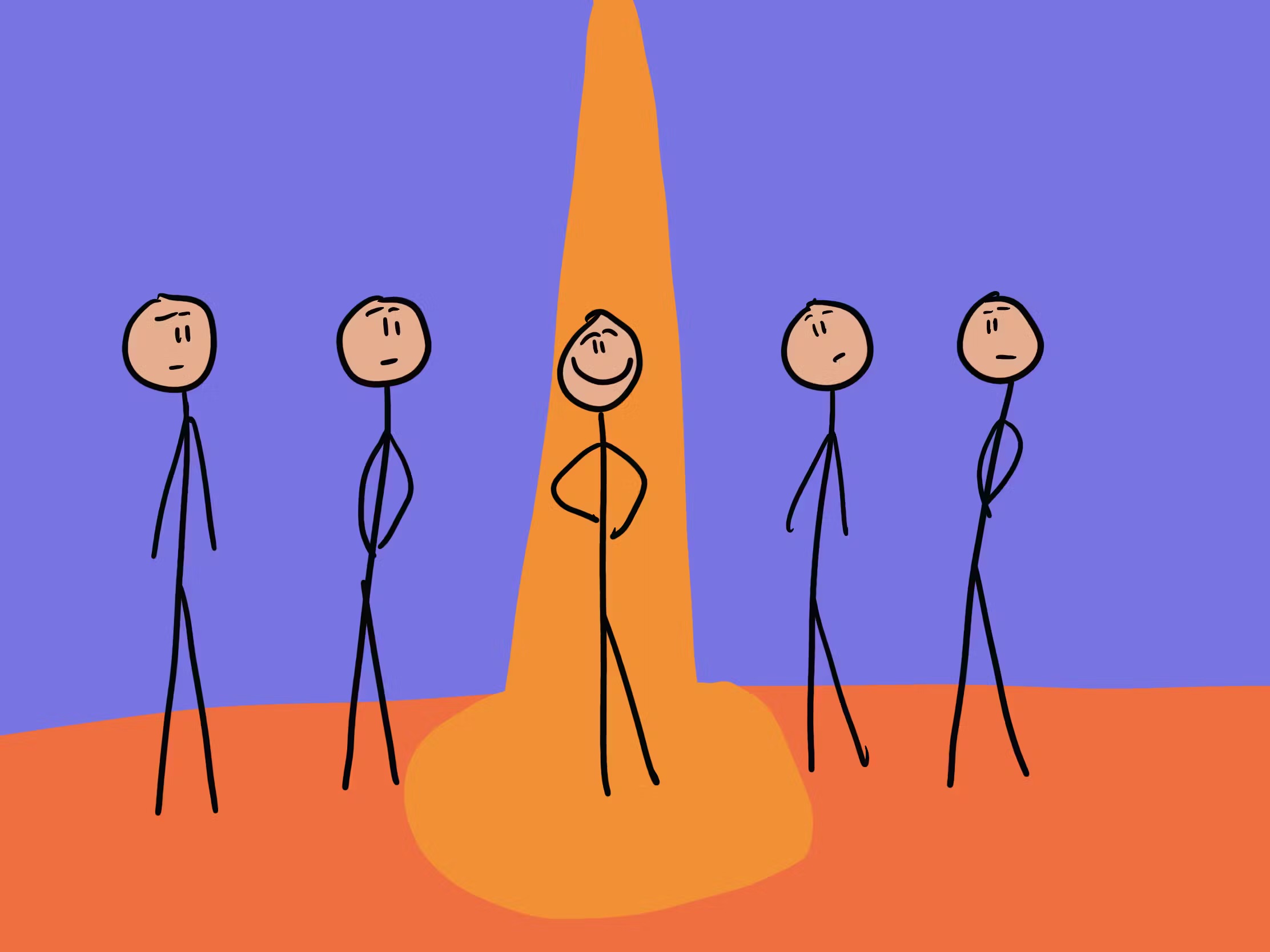Nobody’s Watching (And That’s a Good Thing) – Mia P
In connection with last week being anti-bullying week, for my Bubble article this week I wanted to discuss The Spotlight Effect; a psychological phenomenon where people overestimate how much other people notice them, their actions and their appearance. It is often easy to feel this egocentric bias, where you feel you’re under constant scrutiny, leading to increased self-consciousness and anxiety – this is not unusual! For example, you may wake up in the morning with a minor blemish on your face or you might make a small mistake in the classroom or sport fields, and it is easy to assume that everyone else is fixated on it; in reality, others are more preoccupied with their own thoughts. As difficult as it can be, it is often important to remember that just because we are the centre of our own world, the same applies for everyone and we aren’t the centre of other people’s worlds too.
But why do we feel like this?
Psychologists have narrowed this down to three main reasons:
- Egocentrism: not to be confused with the selfish type of egocentrism, but as humans we naturally see the world from our own perspective. We often anchor our thinking on what we know and feel.
- The illusion of transparency: we often assume out thoughts, emotions and insecurities are a lot more visible to others than they really are, when often we are the only ones aware of them.
- Cognitive overload: we spend too much time worrying about how we’re coming across that we don’t have time to worry about other people and the reverse applies. Everyone is the main character starring in their own movie, not other people’s.
The combination of these three factors is what makes us believe our every move is under a constant spotlight, even when no one is really watching.
This isn’t just a theory though; there has been studies carried out to support it. One well known study was by researchers: Thomas Gilovich, Victoria Medvec and Kenneth Savistsky who had students wear and embarrassing Barry Manilow (a famous American singer-songwriter) t-shirt and walk into a room of peers. The students predicted that about half of the class would notice their shirt, when in reality only about 10%-20% did. This study has become so famous because it shows how deeply we overestimate how much attention and focus others have on us, even when we are intentionally trying to be attention-grabbing.
There are many situations in which this can apply but I have compiled the three that I know personally I have thought about, and so maybe you have to.
- Presentations: that moment when you are stood in front of the class, seemingly all eyes are on you and all you can think about is every time you have said “um” or had to reread a sentence. Just remember the moments before when everyone else was presenting and despite your attention seemingly being directed at them, your eyes have glazed over and all you can focus on is your own presentation coming up. This is a tactic that I have used for years, paired with going early to maximise the number of people who are nervous about presenting and suddenly presenting to an entire room isn’t so terrifying for me anymore.
- Physical insecurity: maybe your hair didn’t lay correctly today, or you had a few more spots than expected this morning, it definitely feels like the end of the world – but it never really is. Other people are typically not observant enough to notice these small issues that you have focussed on all morning, and even if they do notice, they will likely forget instantly. Consider how often you notice issues about others and think about it all day.
- Social awkwardness: everyone has had those awkward interactions where you did something embarrassing and it’s all you can think about. I can’t say I find this a permanent solution but it’s important to be reminded that the other person probably didn’t notice and if they did they likely already forgot the second the interaction was over, it only plagues your mind because it was you who it happened to.
Despite being able to tell yourself that no one noticed, this sometimes isn’t reassurance enough and these situations can result in increased anxiety, self-censorship (avoiding acting how you typically would), overthinking and reduced confidence; The Spotlight Effect is a real issue experienced by billions everyday.
So naturally, you want to understand how you can avoid this.
- Shifts in perspective: remind yourself that how you worry and overthink is no different to everyone else, people are too concerned with themselves to pay close attention to other people’s slip ups.
- Reality check yourself: start asking questions such as, “Will this matter tomorrow?” Or “Did anyone else react, or was it just in my head?”
- Exposure to discomfort: many of you will have seen rejection therapy on TikTok, but this actually works! Having small awkward moments happen and not allowing yourself to spiral mentally will help you build resilience.
- Self-kindness: treat yourself how you would treat one of your friends if they expressed their worries over a small mistake.
Why did I write this article?
I didn’t write this to make you more aware of The Spotlight Effect, however those of you who read my article on the Baader-Meinhof phenomenon may have considered this. But in reality, you are not the only person who overthinks their every actions so understanding The Spotlight Effect can be really liberating. Once you realise that people are not keeping mental tabs on every time you make a small mistake or every time you look ever-so-slightly difference it can become easier for you to relax and take chances without feeling the constant pressure of perfection.
So please remember:
The spotlight you feel isn’t real and stepping out of it can be freeing, so give it a try this week!















Post Comment
You must be logged in to post a comment.